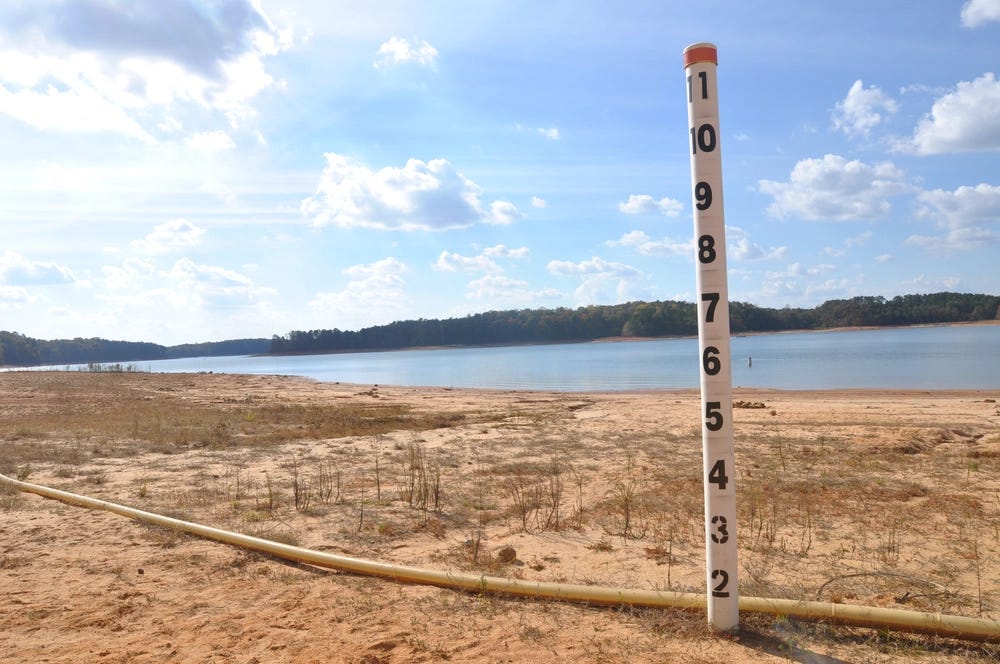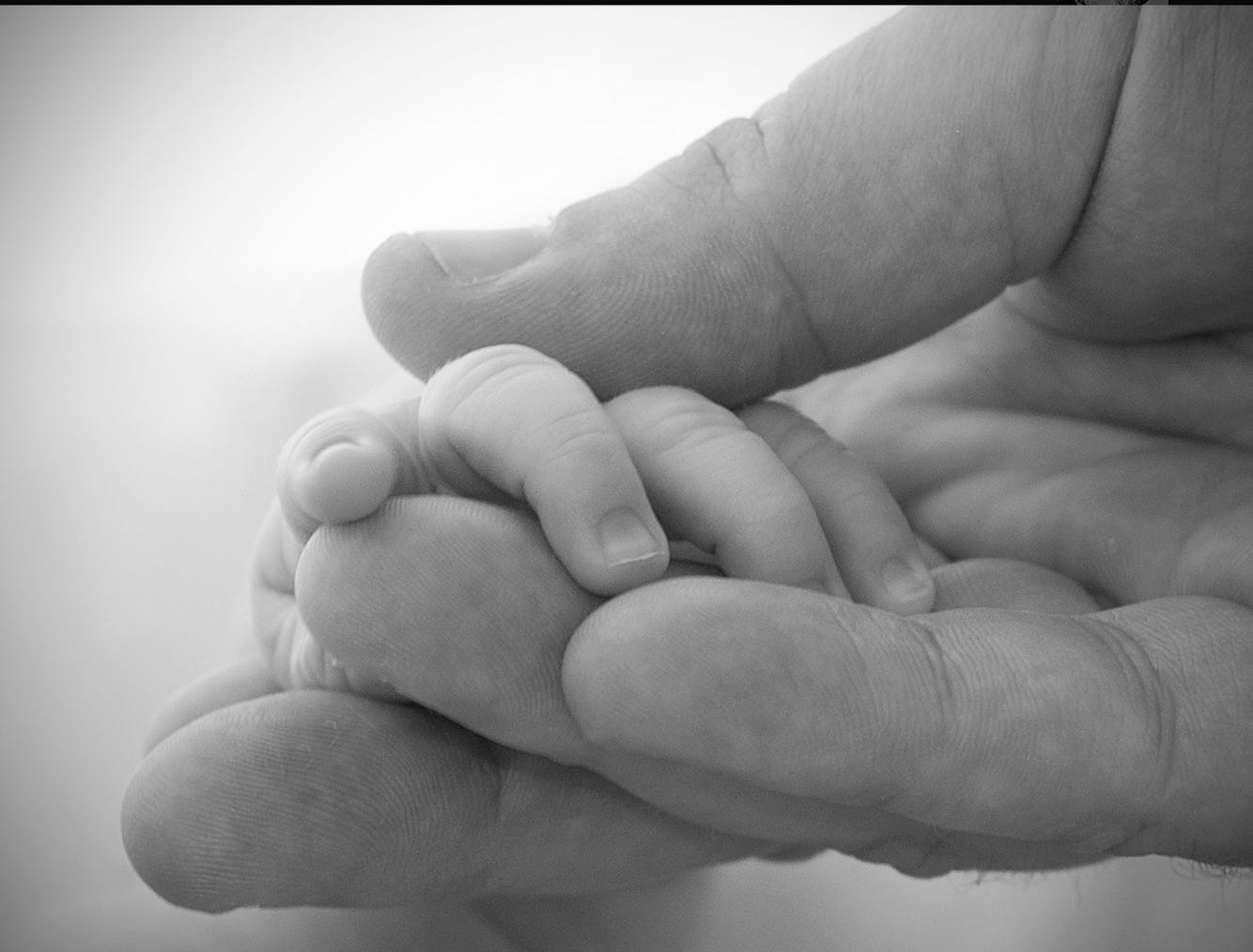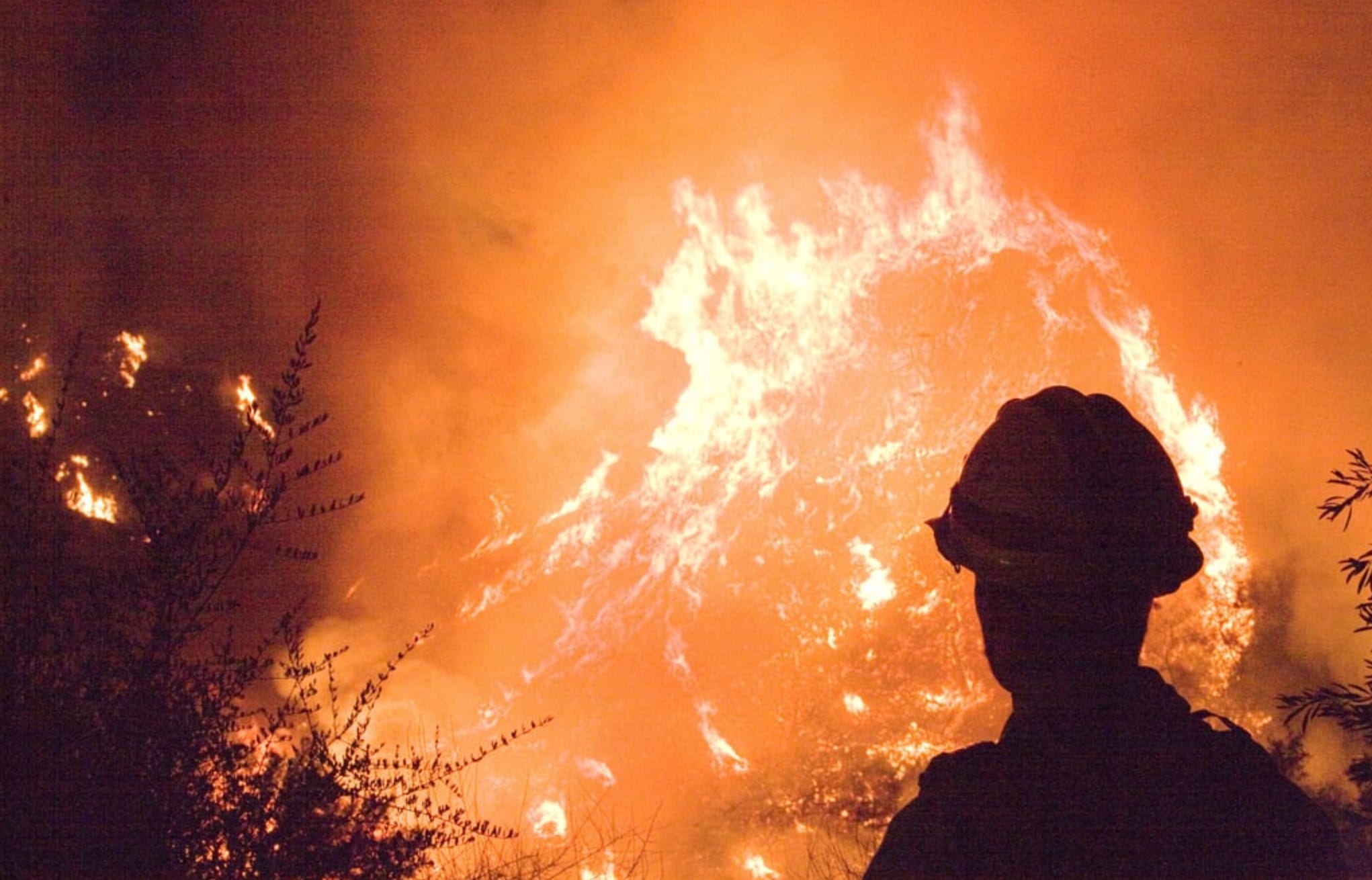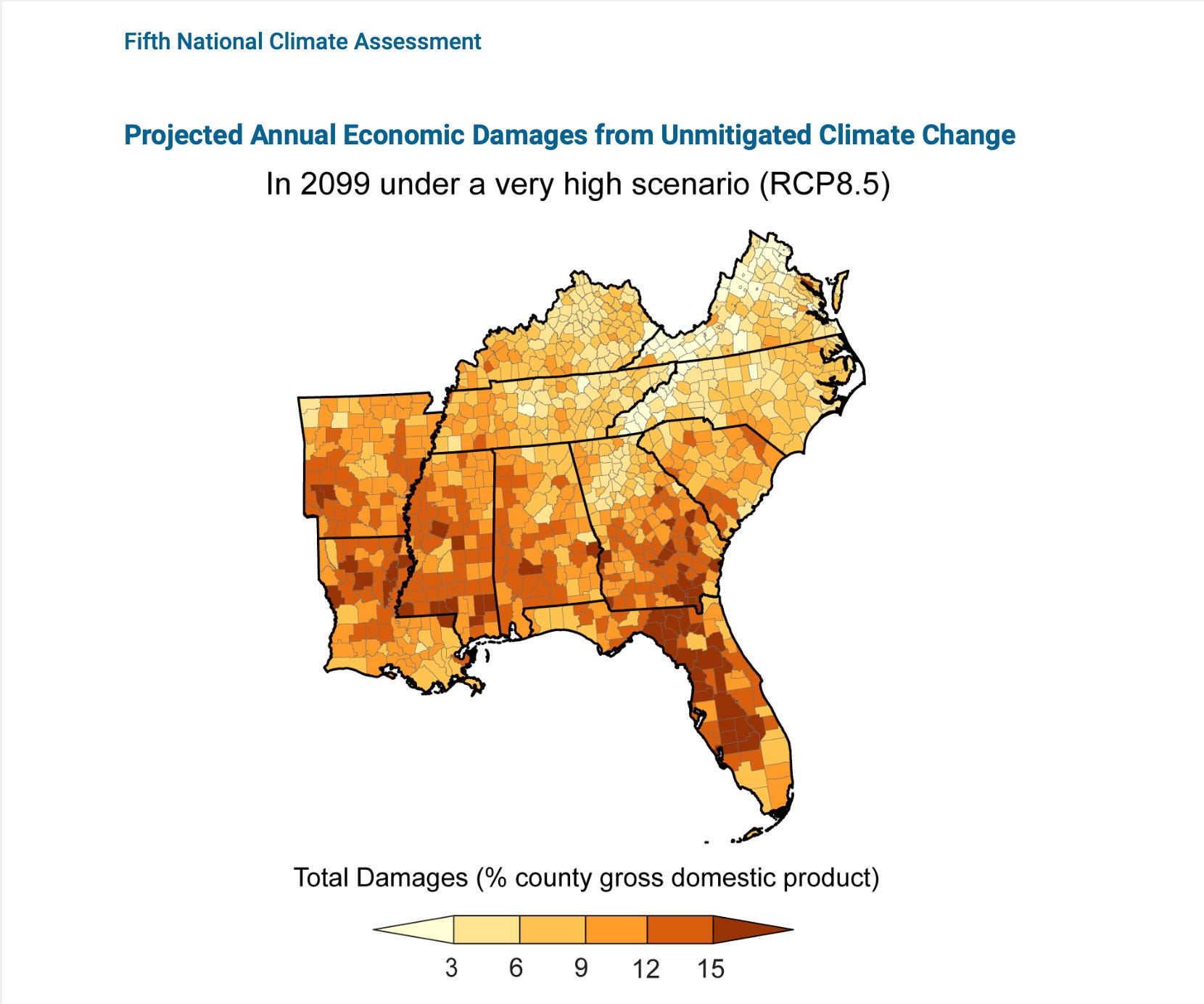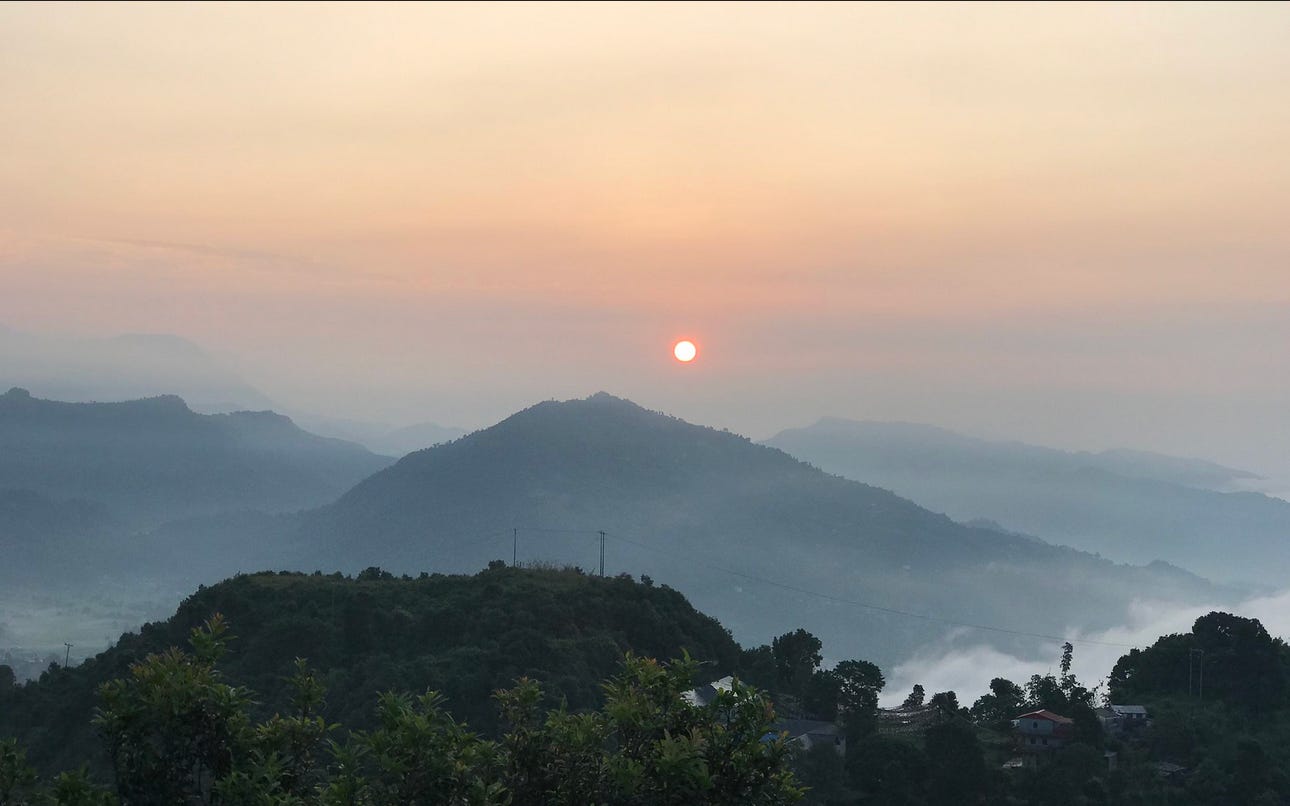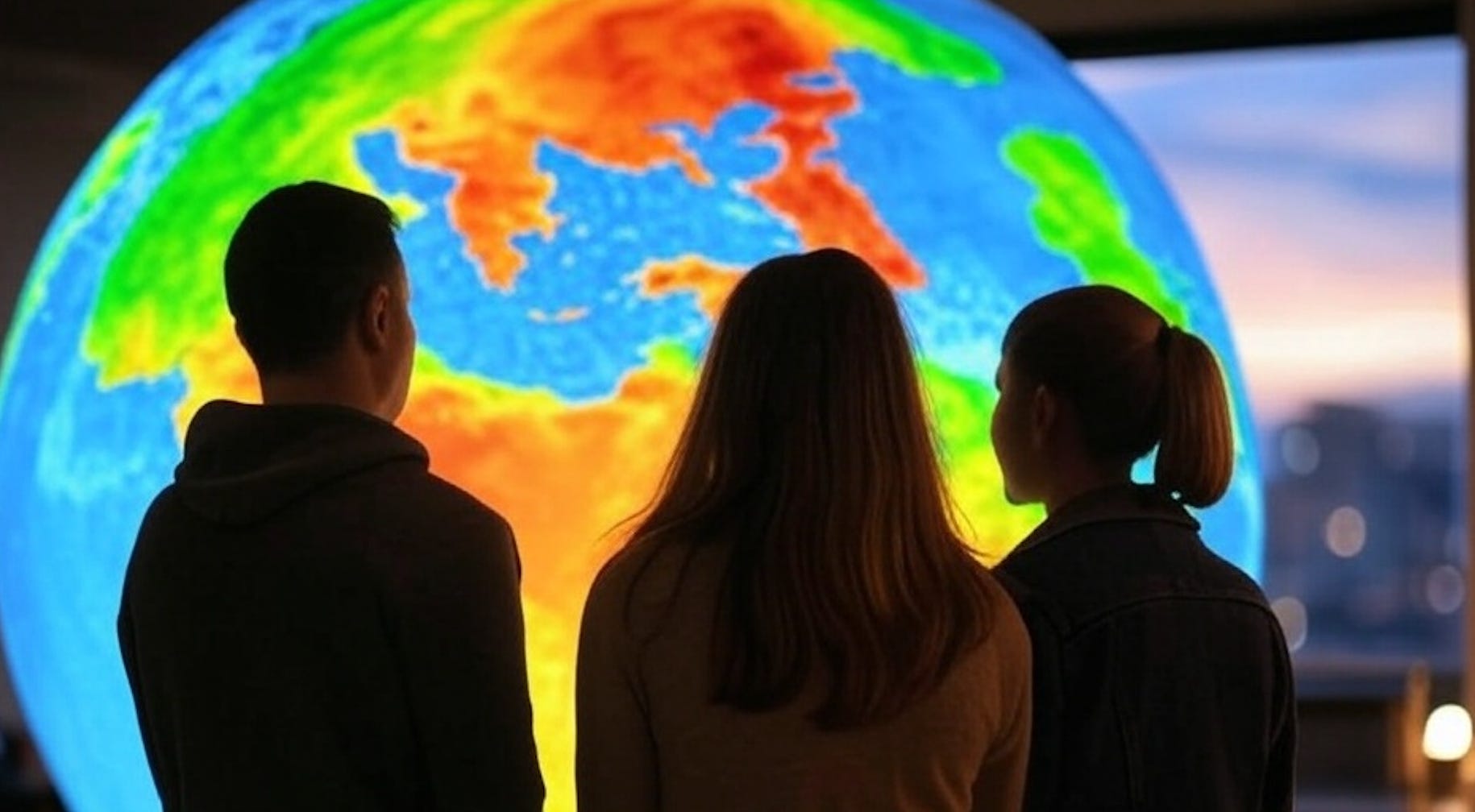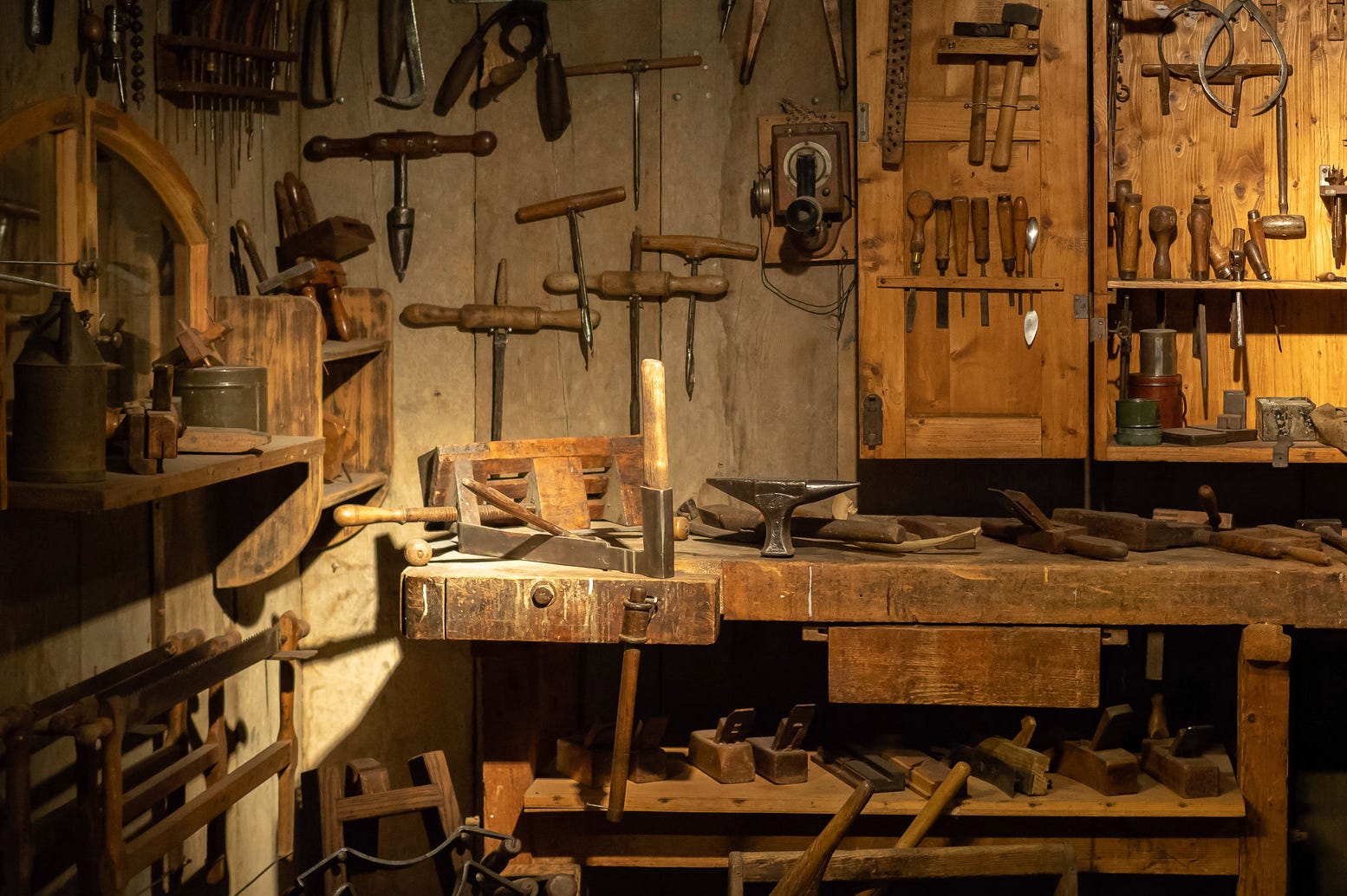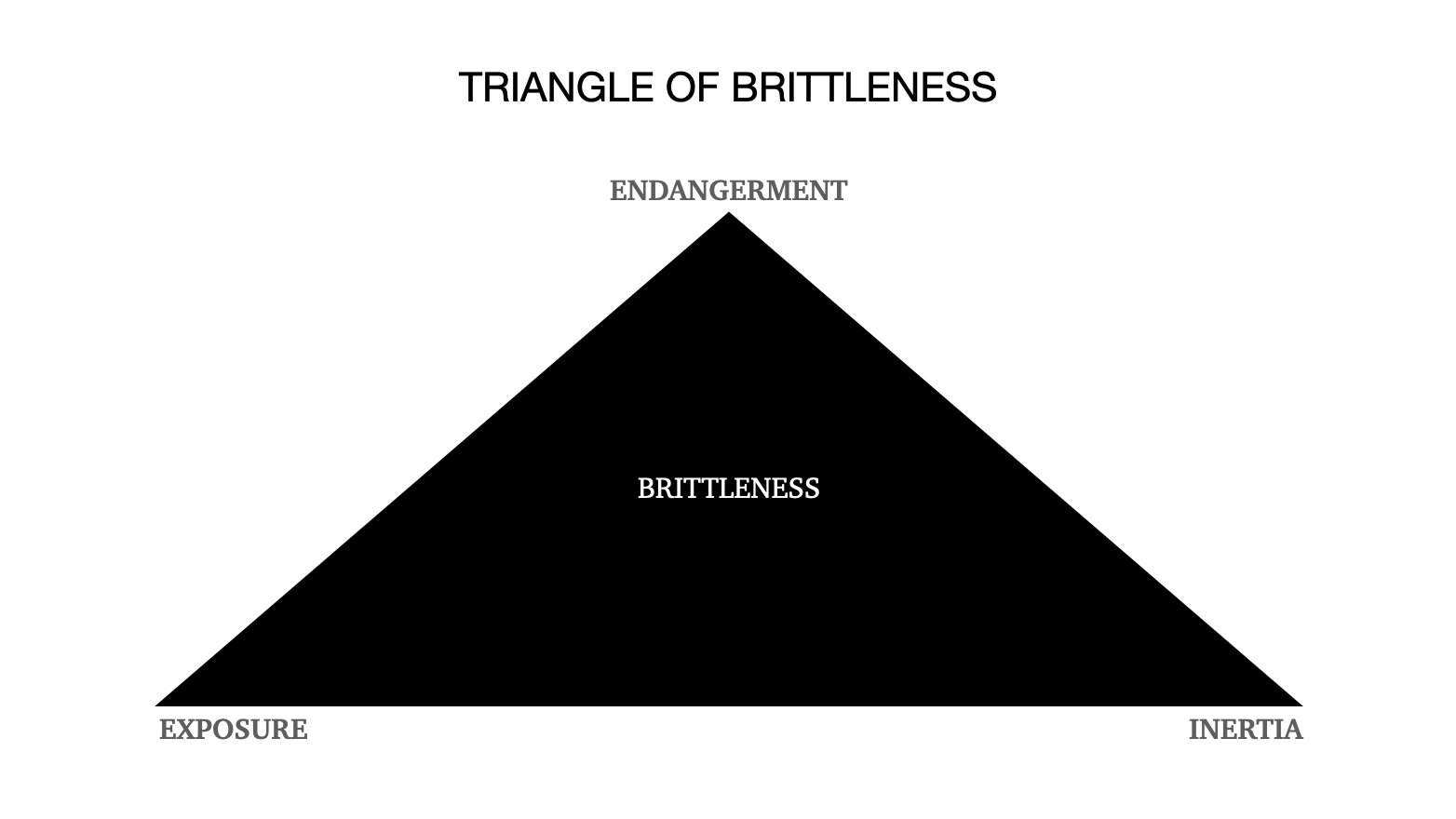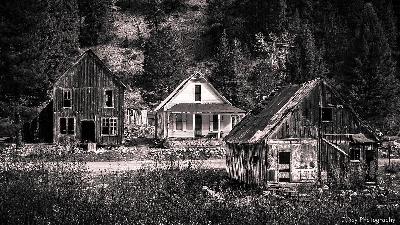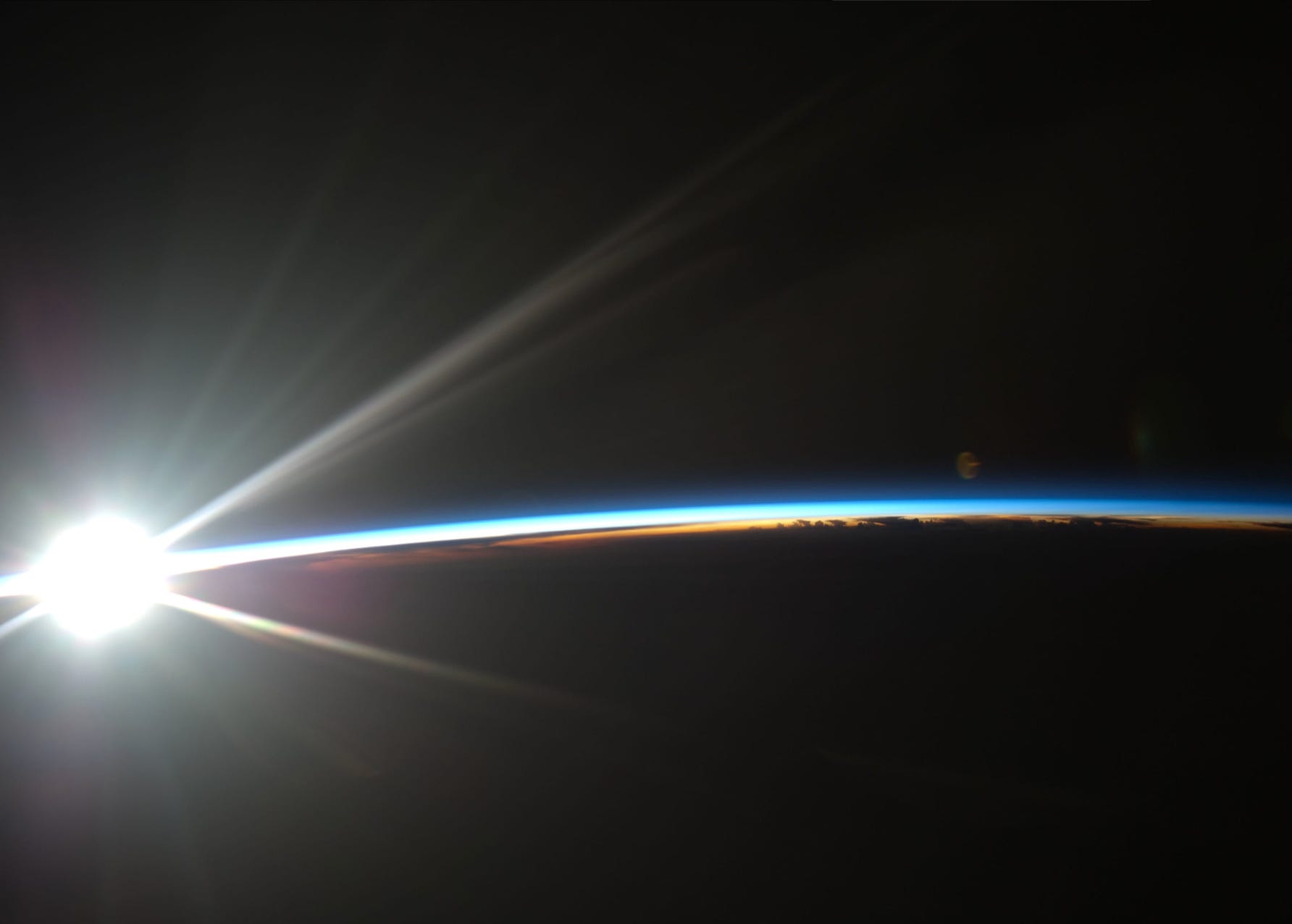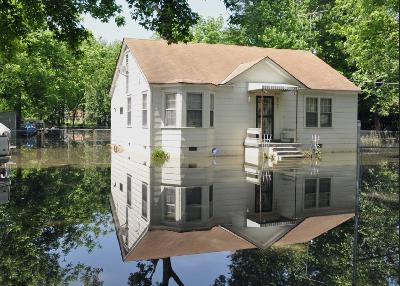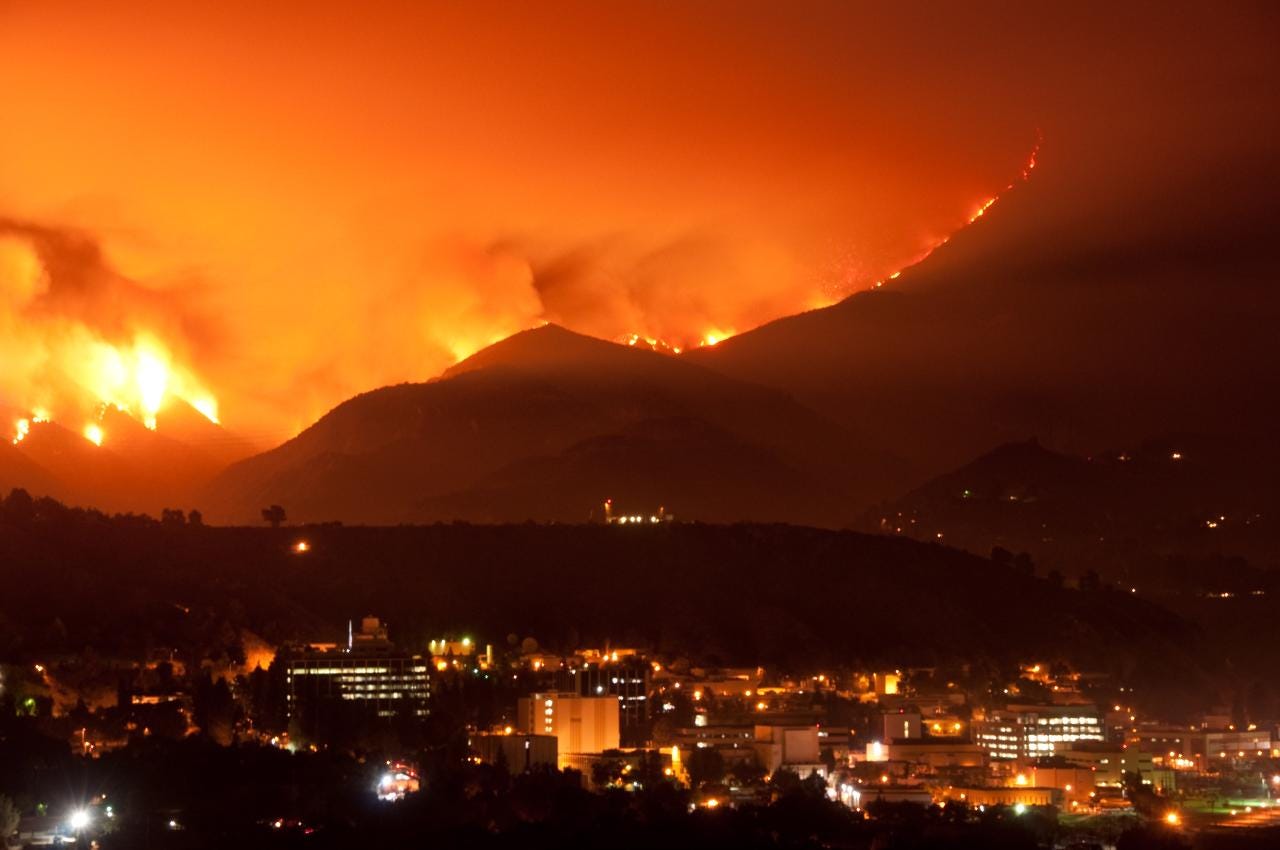Discover When We Are with Alex Steffen
When We Are with Alex Steffen

When We Are with Alex Steffen
Author: Alex Steffen
Subscribed: 6Played: 43Subscribe
Share
© Alex Steffen
Description
The climate crisis is no longer something happening to other people, somewhere else. It's changing all our lives, right now. Few of us are ready.
Join renowned climate futurist Alex Steffen and guests as we show the patterns behind the chaos, learn how to build smart climate strategies, and laugh at the absurdity of daily life in discontinuous times.
alexsteffen.substack.com
Join renowned climate futurist Alex Steffen and guests as we show the patterns behind the chaos, learn how to build smart climate strategies, and laugh at the absurdity of daily life in discontinuous times.
alexsteffen.substack.com
18 Episodes
Reverse
In this episode of When We Are, I talk about those insisting that you can’t possibly choose a safer place to weather the climate crisis, because every place is endangered.I discuss why this claim is obviously wrong (some places are, in fact, relatively safe), and also who benefits from making it.Like every part of the climate crisis, our understanding of risk and ruggedization are undermined by predatory delay and denialism. Paradoxically, the repeated message that nowhere is safe makes it easier to convince us to ignore the dangers around us. Why pay attention to risk if there’s nothing we can do about it, right?I hope you’ll give this short episode a listen.You might also want to check out these recent letters:Why are those with risk-exposed assets fighting so hard to avoid a reckoning with climate risk? Because the Brittleness Bubble is deflating, fast.- Interested in creating your a climate strategy for your own life? My next live, eight-class Personal Climate Strategy Workshop begins on February 12th! Get early access to the Early-Bird discount when you enter your email at the bottom of this page (we'll send you the details ASAP).- Need expert guidance around your own climate planning, or want to discuss a business idea? Schedule a private Climate Strategy Consultation with me.- Let’s connect on Bluesky, LinkedIn or Facebook- Check out my books: Worldchanging (which recently celebrated its 20th anniversary) and Carbon Zero- View my TED Global talks on sustainability and cities.- This podcast, When We Are, is available on Apple Podcasts, Spotify, Overcast and other podcast platforms around the world. Please subscribe, rate and review! This is a public episode. If you'd like to discuss this with other subscribers or get access to bonus episodes, visit alexsteffen.substack.com/subscribe
You’re probably less doomed than you think.If you spend much time trying to figure out how to ready yourself for this accelerating climate crisis, you will likely encounter the idea that there’s nothing you can do. Game over, man.You don’t have to look very far to find people ringing in the apocalypse and inviting you to lie back and greet the collapse. Writing and teaching about climate foresight, solutions-based thinking and personal climate strategies over the years, I’ve had hundreds of people (almost all dudes) go out of their way to tell me how there’s no hope, nothing to be done, our ruin is upon us and I’m an idiot to suggest otherwise.I, alas, tend to base my foresight on facts, and here’s the fact: this is not the end of everything. We have already likely avoided the worst-case scenarios, even if we have locked in a magnitude of crisis many of us worked hard to prevent. It is not too late to limit global heating and ecological collapse, and even the harsh future we’re tumbling towards is still a future full of choices.A lot of people face grim options in battered and brittle communities, sure, but almost everyone still has options. Most listeners to podcasts like mine — educated, informed, and better-resourced than many — have an array of opportunities to make workable plans, seek relatively safety, ruggedize our lives and work with others to ready our communities for what’s coming. Most of us are far from powerless. A lot of us may in fact find that meeting the planetary crisis liberates us to live lives of greater purpose, connection and secure prosperity than the lives we live today.We may not yet personally know how to start building those lives, but that’s a different problem.Give it a listen…AlexIf you want to learn more about your own options for the future, my Personal Climate Strategy: The Basics class is a great place to start. The last class of 2025 will be held tomorrow Tuesday, December 16th, from 12pm - 2pm PST via Zoom (yes, it will be recorded!). Registration closes tomorrow, December 16th, at 11:00am PST.This is your chance to learn the foundational components and frameworks for understanding planetary discontinuity: How it impacts your choices and key decision timelines, and how to make better informed choices about your present and future. Almost 500 people have taken this short intensive (from all around the planet), and we have a great group forming for this class.Registrants also get special discounts and early access to my in-depth Personal Climate Strategy Workshop (next one coming in late-January)Step into 2026 feeling more ready and confident. Get all the class details and sign up here: https://alexsteffen.thinkific.com/products/courses/personal-climate-strategy-classWant to know what others think? For a review of my basics class, check out “How to Prepare Yourself For an Uncertain Future - The Review.” For a review of my workshop, read “Alex Steffen’s Personal Climate Strategy Workshop: A Review.“ This is a public episode. If you'd like to discuss this with other subscribers or get access to bonus episodes, visit alexsteffen.substack.com/subscribe
Soft denialism is climate denialism that denies not the reality of climate change, but rather its importance.In this podcast, I touch on the TrumpII-era resurgence of soft denialism, Bill Gates’ misguided climate memo, and the Atlantic’s claim that “climate adaptation is indistinguishable from efforts to improve human welfare.”Along the way, I explain why failing to understand the climate crisis as a discontinuity in human affairs means failing to understand it at all.The recently-published 2025 State of the Climate Report: a planet on the brink can be found here. A news item that came across my desk after I recorded this, but that reinforces my point: Iceland deems possible Atlantic current collapse a security risk.“Iceland has designated the potential collapse of a major Atlantic Ocean current system a national security concern and an existential threat, enabling its government to strategize for worst-case scenarios, the country’s climate minister told Reuters.The Atlantic Meridional Overturning Circulation, or AMOC, current brings warm water from the tropics northward toward the Arctic, and the flow of warm water helps keep Europe’s winters mild.But as warming temperatures speed the thaw of Arctic ice and cause meltwater from Greenland’s ice sheet to pour into the ocean, scientists warn the cold freshwater could disrupt the current’s flow. … Other climate ministries and meteorological offices across Northern Europe told Reuters they are funding more research while weighing possible risks in their climate adaptation plans. Ireland’s weather service said its scientists briefed the country’s prime minister last year and a parliamentary committee last month. Norway’s environment ministry said it was “seeking to deepen our understanding of the issue through new research” before determining whether to classify AMOC as a security risk.”Remember, we are only at the beginning.This podcast, When We Are, is available on Apple Podcasts, Spotify, Overcast and other podcast platforms around the world. If you like what you’re hearing, please take a minute to rate the show. In Apple podcasts, go to the podcast’s main show page and scroll down to “Ratings & Reviews,” then click the star ratings. This really helps more people find the show. Thank you! This is a public episode. If you'd like to discuss this with other subscribers or get access to bonus episodes, visit alexsteffen.substack.com/subscribe
In my last podcast, I laid out why our horizons of concern are so important.In particular, I talked about how having kids (or grandkids or nieces and nephews, or chosen family, or whatever) makes us care about events that many still consider far off in the future… but that will be within their lifetimes.Having a longer decision horizon means planning for a wildly different world, and doing our best to set these young people up for success.But what if you are the young person? What if you’re just getting a start in life? How can you find a path that will lead you into a better life, even in this harder future?I don’t have a one-size-fits-all answer, unfortunately. There’s no formula that spits out the optimal personal climate plan.What this podcast does offer is a short list of insights that might help you answer these questions for yourself.If you want to delve more deeply into the ideas I discuss, you might find these links helpful:No one wants it to be true.Discontinuity is the Job.Old thinking will break your brain.The biggest error of my working life (so far).Letting Go of Everything We ExpectedPlease feel free to share this one with anyone in your life who you think might benefit.Alex- The Guardian covered my work recently, in a piece titled, “‘All of his guns will do nothing for him’: lefty preppers are taking a different approach to doomsday.”- Find me on Bluesky.- I’ve spoken with the media hundreds of times. I was featured in a NY Times Magazine piece, "This Isn't the California I Married." My writing was the jumping-off point for an episode of This American Life titled Unprepared for What Has Already Happened, as well as the podcasts Without; The Big Story; Everybody In the Pool and 99% Invisible’s Not Built for This series.This podcast, When We Are, is available on Apple Podcasts, Spotify, Overcast and other podcast platforms around the world. If you like what you’re hearing, please take a minute to rate the show. In Apple podcasts, go to the podcast’s main show page and scroll down to “Ratings & Reviews,” then click the star ratings. This really helps more people find the show. Thank you! This is a public episode. If you'd like to discuss this with other subscribers or get access to bonus episodes, visit alexsteffen.substack.com/subscribe
In this podcast, I talk about our horizons of concern. I discuss what it means to love kids who will experience the full blast of the climate crisis, decades from now.When facing threats that are fast-moving and increasingly chaotic, it’s natural to want a simple answer. The more threat and confusion we feel, the simpler the answer we’re likely to seek. Someone is always prepared to provide those simple answers, for profit or political advantage. We see this in the field of climate foresight, where a wide range of ratings and scores and lists and trainings and survival products are newly available for purchase. Looking for a way to calm your climate anxiety with a soothing bath salt, bug out to a supposed climate haven or build a bunker to save yourself from societal breakdown? Two minutes of Googling and a valid credit card will find you someone willing to tell you what you want to hear.But in real life, here in the planetary crisis, there are no simple, one-size-fits-all answers. Which is okay, because we don’t need simple answers. What we need is an increased capacity for making good decisions in unprecedented situations.The discontinuities unfolding around us will not be “solved” in our lifetimes—or for generations to come. We won’t be returning to past stabilities, and there is no new stability we can now hope for if we just cut carbon fast enough.Instead we need to understand personal climate strategies as evolving tools. We should make critical decisions before we lose the option to make them, but also be aware that there are no permanent solutions in an era of ongoing large-scale transformations. We’re planning with imperfect information, and each person or family has different needs and constraints.One way in which our needs differ profoundly is our timelines.If you’re retired and single, without kids, accepting the short-term odds on increasingly probable catastrophes might be a valid choice. Short planning horizons let us discount future risks.Taking those same chances becomes reckless, though, when we consider the prospects for our kids or the young people we care about in general. Our horizon of concern dictates that we ready ourselves for a world beset by chaos and calamity, in part so we can help our kids be ready in turn.Our popular debate still treats 2050 as far ahead, and 2100 as another world. Yet babies born today in wealthy countries are statistically likely to live to see the year 2100.And 2100 will be a tough time.Paradoxically, the farther ahead we’re thinking, the more important making today’s big decisions in foresighted ways becomes.Adaptability is key, but so is getting to relative safety while it’s still affordable. So is updating our worldviews and skillsets. So is investing attentively. So is strengthening our ability to be see this new era for what it is. And so, as well, is growing purpose-driven conversations about the future we face with people we care for.How far ahead does your horizon of concern stretch?AlexPS: Articles I cite in the podcast:Global emergence of unprecedented lifetime exposure to climate extremes“Under a 1.5 °C pathway, 52% of people born in 2020 will experience unprecedented lifetime exposure to heatwaves. If global warming reaches 3.5 °C by 2100, this fraction rises to 92% for heatwaves, 29% for crop failures and 14% for river floods.”[Unprecedented: "extremes above the 99.99th percentile of exposure expected in a pre-industrial climate."] 1-in-10,000 year occurrences.Warming of +1.5 °C is too high for polar ice sheets“[C]urrent rates of SLR could increase rapidly with only small changes in temperature. Identifying temperature thresholds for each ice sheet is, therefore, critically important, with recent work suggesting best estimates for the GrIS and WAIS at +1.5 °C“[D]espite recent advances, few ice sheet models accurately reproduce the rapid mass loss from ice sheets over the last few decades, suggesting uncertainties may be larger than assumed, even for low emissions scenarios. Indeed, while models are effective in exploring parametric uncertainty, they are less well suited for capturing epistemic uncertainties. This point is highlighted by an analysis of expert judgement94, which found much higher uncertainties associated with ice sheet contributions to sea level, e.g. a GMSL rise >2 m by 2100 fell within the 90th percentile credible range for a high emissions scenario…”The Guardian covered my work recently, in a piece titled, “‘All of his guns will do nothing for him’: lefty preppers are taking a different approach to doomsday.”- Find me on Bluesky.- Check out my books: Worldchanging and Carbon Zero- View my TED Global talks on sustainability and cities.- I’ve spoken with the media hundreds of times. I was featured in a NY Times Magazine piece, "This Isn't the California I Married." My writing was the jumping-off point for an episode of This American Life titled Unprepared for What Has Already Happened, as well as the podcasts Without; The Big Story; Everybody In the Pool and 99% Invisible’s Not Built for This series.This podcast, When We Are, is available on Apple Podcasts, Spotify, Overcast and other podcast platforms around the world. Please rate, review, follow and share these episodes (it helps more people find the show). Thank you! This is a public episode. If you'd like to discuss this with other subscribers or get access to bonus episodes, visit alexsteffen.substack.com/subscribe
Hey folks,This is a bit of a longer podcast, where I unpack some of the uncomfortable realities of this present moment in the planetary crisis — and why we need a new approach to solutions thinking and chosen optimism.Some of the ideas discussed: * How I’ve been reluctant to engage the more conflict-generating parts of climate foresight in public, but am done being circumspect.* The violent reaction to knowledge, expertise and authority being recontextualized by discontinuity.* Moving from a time of climate action as solution to climate action as harm reduction.* The staggering scale of needed climate responses, and their steepening nature.* The impossibility of saving many communities from grim futures, even if we mount a currently-implausible set of national and international ruggedization and mass-relocation efforts.* The necessity of responding as effectively as we can, despite the certainty that much will be lost, in unfair ways, and millions face some pretty tough futures.* The need to envision and articulate futures of relative safety, partial stability and limited inequity — and to embrace building rapidly and at scale to secure those futures.* The default future of brittle places: brittleness traps, unofficial abandonment, transapocalyptic local collapses.* How anti-climate right being far more aggressive and focused on destroying our capacities to respond than largely liberal climate advocates have been in trying to build them up.* Trump’s attacks on climate diplomacy, environmental law, climate planning, clean energy, disaster preparedness and response, risk management, even basic science itself.* The billionaire predators and their allies who foresee luxury survival compounds for themselves — and walls, debt and profitable exploitation for everyone else. People who look at the breaking of the future as their chance to try to cement their hold on dynastic wealth and unchallengeable power.* The need for building rugged sustainability into the fabric of communities in relatively safe places, both for its own sake and as a counter-balance to reactionary disaster exploitation. Successful climate response demands a giant building boom.* The less we build, the tighter the climate-relocation bottleneck will get.* Why personal climate strategies are no longer luxuries, and time is short.As always, thank you for tuning in.AlexThe Guardian covered my work recently, in a piece titled, “‘All of his guns will do nothing for him’: lefty preppers are taking a different approach to doomsday.”- Find me on Bluesky.- Check out my books: Worldchanging and Carbon Zero- View my TED Global talks on sustainability and cities.- I’ve spoken with the media hundreds of times. I was featured in a NY Times Magazine piece, "This Isn't the California I Married." My writing was the jumping-off point for an episode of This American Life titled Unprepared for What Has Already Happened, as well as the podcasts Without; The Big Story; Everybody In the Pool and 99% Invisible’s Not Built for This series.This podcast, When We Are, is available on Apple Podcasts, Spotify, Overcast and other podcast platforms around the world. Please rate, review, follow and share these episodes (it helps more people find the show). Thank you! This is a public episode. If you'd like to discuss this with other subscribers or get access to bonus episodes, visit alexsteffen.substack.com/subscribe
The Trump gang has continued their chaos attack on America, most recently by gutting the next National Climate Assessment, including dismissing the group of scientists and experts preparing it.In this podcast, I quickly explain:* What the NCA is, and why it’s so useful.* Why clear climate assessments, delivered through transparent processes, are so critical to climate foresight — both in America and around the world. * What it means for each of us, as individuals, to try to make good future decisions when the best climate foresight is increasingly private, proprietary and developed behind closed doors, available only to large companies and very wealthy individuals.It’s not cheerful material, but it’s important. Thanks for taking the time to listen.If you’re interested in learning how to make sense of and manage climate discontinuity in your own life, you might consider taking my introductory class, Ruggedize Your Life: The Basics My next live class will happen on Thursday, May 15th from 11:00am - 1:00pm Pacific Standard Time on Zoom. (Class will be recorded for those who cannot attend live.) Registration is open and filling up. (A few low-cost seats remain for those who need them — use code RYLSAVE100 at check out).» You can learn more about Ruggedize Your Life: The Basics.» Skip straight to registering yourself for the class.My personal climate strategy classes were recently featured in The Guardian in a piece titled, “‘All of his guns will do nothing for him’: lefty preppers are taking a different approach to doomsday.” This is a public episode. If you'd like to discuss this with other subscribers or get access to bonus episodes, visit alexsteffen.substack.com/subscribe
Notes for this podcast:“Being too far ahead is the same thing as being wrong.” —James AllworthIf you talk about the future, you risk having a market that's still unprepared to see the value in what you're offering to them. But sometimes what was too far ahead becomes exactly what people now need to know.We're seeing a sea change in climate foresight. An abrupt collision with reality, that is snapping forward a whole set of conversations about strategy, the future and the perils and opportunities of our moment.One fundamental change that's happening right now is the understanding that the planetary crisis IS our world. This is not an issue, but an era, and planning for life in that era is the only kind of planning that will work.The suddenly widespread discussion of 3ºC futures is a perfect example. While it is possible we may end up at 3ºC sometime towards the end of the century, I don’t think it’s a very likely outcome. But 3ºC is an attention-arresting number: the magnitude of change it would bring is so large, thinking about it becomes a wind tunnel for testing all sorts of institutional assumptions.A second change is a spreading realization that accelerating future risks aren't future dangers, they're present losses.A recent Allianz SE commentary says what I've been saying for 20 years, but it offers an important benchmark about how fast the debate is moving now.What’s unsuited for the climate we now live in, is worth less than we think. The scale of the brittleness bubble around us, and how, on our current trajectory, without an absolutely massive reallocation of resourses towards climate response, we will see much of the world suffer devaluation and capacity erosion.A third shift is an abrupt recognition of the scale of the gap between what is needed and what we have.Our widespread failure to adapt to new conditions.Trump's chaos attack on the nation’s climate science and risk mitigation capacities.The growing importance of places being either organically safer than elsewhere (by virtue of geography or luck, or readily ruggedizable, or both).Why on a three degree trajectory, relative safety becomes the most valuable commodity in the world. (27:48). And right now, it is still seriously underpriced (that won't last forever).A forth emerging change is the understanding that our encounter with discontinuity is only the beginning.Why it's incorrect to think that the end of continuity equals collapse.The kinds of big moves demanded now themselves change the world, undermining the value of the brittle and out-of-date and increasing demand for rugged and responsive systems, communities and institutions.Effective strategies today make that discontinuous world advantageous.Huge opportunities that exist within discontinuity. The competition to realize those opportunities is itself a major change dynamic. There’s growing awareness that the prizes to be won in large-scale climate response are of a far greater magnitude than discussions of “green business” or the clean economy would lead any of us to believe.We're in a new moment, and being “too far ahead” is turning out to be ready for the present.Thanks for tuning in,AlexThis is part of my new podcast, When We Are, available on Apple Podcasts, Spotify, Overcast and other podcast platforms around the world. If you found this discussion helpful, please subscribe, rate and review the show so that we can reach more listeners. Thank you!- Find me on Bluesky.- Check out my books: Worldchanging and Carbon Zero- View my TED Global talks on sustainability and cities.- I’ve spoken with the media hundreds of times. Recently, I was featured in a NY Times Magazine piece, "This Isn't the California I Married." My writing was the jumping-off point for an episode of This American Life titled Unprepared for What Has Already Happened, as well as the podcasts Without; The Big Story; Everybody In the Pool and 99% Invisible’s Not Built for This series. This is a public episode. If you'd like to discuss this with other subscribers or get access to bonus episodes, visit alexsteffen.substack.com/subscribe
Reminder: My intensive Crash Course in Personal Ruggedization begins Tuesday. Registration ends tonight at 11:59 pm Pacific time.Ready to sign up? Click the button below.Or click this link https://app.acuityscheduling.com/schedule/21f79c52/?appointmentTypeIds[]=73970428Recognizing when we are can be a life-changing experience.In this podcast I explore how, for a growing number of us, it no longer feels enough to simply acknowledge that climate change and the planetary crisis are real, or even to sound the alarm about the magnitude of the problems we face.Instead, we find ourselves wanting to talk about our life, work and future in the context of unprecedented discontinuities — and the disruptive responses they demand.This crisis is an era, not an issue. We want to be in conversation with others about how it feels to live in this new era, not simply agree (or argue) about it’s seriousness. There is, in short, a deep hunger for the meeting of context and connection in our relationships. Real connection is grounded in a shared experience. For those who’ve seen what’s happening, shared lived experience of profound discontinuity is the foundation for meaningful conversations about the world as a whole.That shared experience is also what gives real depth to discussion of our hopes, dreams and ambitions. One of the things that older worldviews can’t encompass is the notion that continuity is gone, and we won’t be getting “normal” back — and that discontinuous change also opens up new possibilities.When every discussion of the planetary future (to the extent it’s discussed at all) centers on how bad it’s getting, there’s no opening to discuss the genuinely profound opportunities in front of us. (Which, in some settings, is the point of keeping the conversation grim, as I’ve written.)What a relief it is to find yourself in company with folks whose outlooks don’t instantly veer apocalyptic with the demise of past certainties! It’s so liberating to talk with people who — without denying the seriousness of the crisis — are open to the huge new opportunities ahead of us, the ambitions for change at scale that might prove transformative, the kinds of lives that can prosper because they are better-suited to the world as it is. Who understand that discontinuity is the job.As I wrote before, about the ways old thinking hampers our understanding of this moment,Events being unprecedented does not make them beyond comprehension. The loss of continuity does not mean a descent into blind chaos. We can learn to thrive amidst discontinuity, disruption, upheaval. There are thousands of people teaching themselves how, right now.Those of us who understand unprecedented discontinuity as the beginning of the future (and not simply as the end of the past) may still be few in number, but we’re starting to have the most important conversations anyone is having, anywhere.If you want to be a part of those conversations, you’re in the right place. This is a public episode. If you'd like to discuss this with other subscribers or get access to bonus episodes, visit alexsteffen.substack.com/subscribe
My intensive Crash Course in Personal Ruggedization begins next week.Five, two-hour classes held via Zoom on Tuesdays and Thursdays (March 11th, 13th, 18th, 20th and 25th). A 90 minute wrap-up Q&A discussion on Thursday, March 27th. Class Times: 11:00am Pacific Standard Time (PST)Ready to sign up? Click the button below.Or click this link https://app.acuityscheduling.com/schedule/21f79c52/?appointmentTypeIds[]=73970428Friends,If you feel your compass spinning these days, you are definitely not alone.The sheer speed of planetary change and the chaos unfolding in our politics, economy and international affairs feels wildly disorienting, even before we add this surge of disinformation, climate denial, criminality and predatory delay.If it was hard plotting a course through the major discontinuities of climate and ecological chaos before, it can now feel completely bewildering.But it’s never been more urgent to have your own plan, and not wait for someone official to tell you what to do.That’s because, as I’ve said,Collective climate action is no longer a substitute for individual climate readiness.The crisis is here, and no society is ready. No matter what we all do together to limit the crisis, we’re each personally going to have to prepare ourselves for life in a hotter, more chaotic world.As climate adaptation researcher Jesse Keenan sums it up, “You’re on your own.”No one is coming to save you and your family from the escalating dangers and disruptions around you.Even in the most-fortunate, best-governed and wealthiest communities on Earth, your family’s security and prosperity still depend on you taking responsibility for your own future.You need a strategy for ruggedizing your life.The mayhem we’re seeing in Washington DC and around the world only makes embracing that responsibility yourself more urgent.These are not easy decisions to make on your own.—So many people are facing tough decisions on a tight timeline right now.Does this sound familiar? You might be...* Growing more alarmed about the climate and ecological dangers around you* Relocating due to recent fires or flooding (or other climate-related impacts) and needing to quickly choose a new place to live.* Weighing if you should sell your home, and how soon.* Considering the ramifications of rebuilding in a climate-impacted location.* Feeling unsure about how to assess the pros/cons of a potential property or getting lost in risk maps and climate ratings.* Wishing you had a coherent, expert framework for assessing relative safety when considering a move, whether you're moving across town or to a different country.* Helping others navigate these kinds of complex choices, as a real estate agent, investment advisor, consultant, therapist, teacher or coach, and wanting to better serve them.* Wanting to learn in a group of thoughtful people who take these issues as seriously as you do.In this crisis, speed is everything.The planetary crisis is worsening fast, climate costs are rising, and competition for homes in relatively safe communities is increasing.Well, my six-session A Crash Course in Personal Ruggedization works fast. It delivers concentrated insights, real-world examples, select readings, and discussions to give participants a strong foundation for making clear-headed choices in discontinuous times.I don’t give simple answers to what are deeply complex problems, but I do equip you to make better decisions.—The next Crash Course starts a week from today.Five, two-hour classes held on Tuesdays and Thursdays (March 11th, 13th, 18th, 20th and 25th). A 90 minute wrap-up discussion on Thursday, March 27th. Class Times: 11:00am Pacific Standard Time (PST) (Classes will be recorded, and recordings will be sent following each class.The deadline is midnight, this Sunday, March 9th. click this link to sign up:https://app.acuityscheduling.com/schedule/21f79c52/?appointmentTypeIds[]=73970428—In this crash course, we’ll cover five main topics:MAKING SENSE OF A COMPLEX CRISISClimate chaos means the world no longer works the way it used to, and things are getting stranger by the day. How do we understand this crisis? How it is discontinuous with the expectations we were raised to have? How bad could it get? What are we preparing for?SCOUTING FOR RELATIVE SAFETYPlace is the prime pivot point of all climate strategy. How do we judge regions and assess their risks? What are the major risks to look out for, and how do we measure them for any given region? What is relative safety, and where can we find it? Should we move across the world, or across town — or dig in where we are?FINDING (OR BUILDING) COMMUNITIES THAT WORK IN TURBULENT TIMESIn any given area, some communities will respond in ways that help their citizens thrive, and some will fail. What is climate brittleness and why is it so dangerous to our prospects? How do we evaluate cities and local efforts? What are some of the indicators of places that are being built and governed to be more rugged in the face of climate chaos? How do we buffer against political upheaval?MAKING A HOME THAT CAN WEATHER THE STORMHow do we pick a specific place to build our future? What should we look for in a home, a neighborhood and a community? What are the costs and benefits of urban, suburban and exurban lives? How do we move quickly enough to outpace the coming climate-driven housing bottleneck? What are the opportunities and perils of relocation in politically turbulent times? Why might the best-sited and best-run places see boom times in the coming decades?CLIMATE-PROOFING OUR LIVES AND FAMILIESHow do we start building a rugged life, in all parts of life? What’s most important to us as people as we build our personal climate strategy? How do we align our family and household, career and investments, citizenship and ethics to new realities? How might we talk with our family, friends, neighbors and colleagues to include them in our planning? How do we make this crisis into an opportunity for deeper connection and purpose?By the end of March, it is our goal to help you feel more confident in:* Making clear decisions in the face of unprecedented planetary discontinuities;* Assessing climate risks and trends (present and future);* Planning your family's climate strategy (where to live, how to ruggedize your life, and how to bring climate foresight into the wide range of decisions this crisis is influencing);* Feeling more grounded, more at home in the present and ready for the future.It’s getting pretty damn real out there, folks, but 2025 can be the year you make yourself ready for what’s on its way.In the last five years, I’ve taught more than a dozen courses, with more than 400 participants, and had hundreds of other one-on-one conversations with folks about their plans for responding to climate discontinuity in their own lives. I’ve built a course that reflects everything I’ve learned in the process.Questions? Here are some of the ones we get asked the most:1) Is this course designed for people outside of the U.S., too?Yes! While most of the examples and maps are from a U.S. context, I have traveled extensively for years, and can toggle contexts easily. The most important insights are universal.2) What if I'm most interested in ruggedizing my business? Will this course help?To make smarter personal choices in the face of the climate crisis, we learn to see (and anticipate changes in) the interconnected systems around us. Those same insights can also help us make better decisions in business and investing.3) I can't make all the classes, are they recorded?Every call is recorded and shared with the participants. Live attendance is not mandatory (though it is encouraged).4) Will this course detail specific places that are safer to live?Much of this class is about choosing safer places to relocate to. I don't recommend specific places (in part because each person has their own needs), but I provide a straight-forward framework for choosing a place to go and discuss the pros and cons of certain areas. A number of past participants have found this criteria clear enough to pick safer homes and relocate (including two participants who relocated out of the path of the LA fires before those wildfire struck).5) How much interaction is there? How much access will I have to Alex?We do 30 minutes or so of group discussion at the end of every class, and there is a 90 minute group Q&A wrap up call at the end. I am available to answer questions (and for deep-discount coaching calls) during and after the course. If you want more guidance, we can arrange one-on-one calls to follow up.6) Do I have to be a climate expert or work in a climate job for this to make sense?Though many participants work in climate-related fields and businesses, the course starts from the basics and builds systemic understanding from there. No special knowledge is needed to benefit, and a list of resources for further learning is provided.7) What if I decide this course isn’t right for me?We want you to have a great experience. We also value your investment of time and resources. If, after the first live call, you truly believe that the course is not right for you, you have until Thursday, March 13 at 10:00am PST to request a 90% refund.Ready to sign up? Click the button below.Or click this link https://app.acuityscheduling.com/schedule/21f79c52/?appointmentTypeIds[]=73970428Testimonials:“For anyone interested in personally preparing yourself and your family for climate change impacts, boy do I have a great recommendation for you… one of the most impactful learning experiences I’ve had on any topic in the last decade.All you have to believe is that the future is likely to be more risky and uncertain, whether from climate change or just natural disasters, political instability, social unrest, armed conflict, economic or supply chain disruption, etc.Heck, you could completely disbelieve climate change is happening at all, and this course would still be transformatio
In this podcast, I react to the recent New York Times piece How Can I Lower My Climate Risk When Buying a House?The piece begins by noting the rising concern people have with the growing risks they take on when buying a home:“A question we get from readers more and more is some version of this: How should the growing risks from climate change affect my decision to buy a house? Or, if I buy a house, where should I buy, and what should I keep in mind?“It seems especially urgent now, as insurance costs in some parts of the country have far outstripped the rate of inflation. Here’s some advice from experts.”It’s a good advice, as far as it goes.I explore what’s missing from the discussion, and why intelligent climate relocation is not a simple matter of, say, comparing climate risk ratings on a FEMA map.I briefly explain my “triangle of brittleness” framework, and why smart relocation takes looking more deeply into the strengths and weaknesses of different locations — and why the best answer will be different for each of us, based on our lives, resources and priorities.I also explain why discontinuity and loss only seem to be problems of the future, and how quickly recognition of risk could lead to big economic shifts. Urgency is appropriate when figuring out your strategy for life in a worsening planetary crisis.—AlexOther news:- This new podcast, When We Are, is also available on Apple Podcasts, Spotify, Overcast and other podcast platforms around the world, should that be your preferred way of listening. Please subscribe, rate and review.- My work was mentioned in two news stories in the last weeks, one in The Atlantic about the breakdown of sense-making in social media and one in The Guardian about the California fires. Also, a reader asked where they might find this interview I did back in 2022: How to ruggedize your life and prepare for... whatever comes next.- I have a recent piece in Mother Jones, Trump Won’t Confront the Climate Crisis. He’ll Feast Off It.- Stay connected on social: Twitter, Facebook, Instagram, Bluesky- I’ve spoken with the media hundreds of times. I was featured in a NY Times Magazine piece, "This Isn't the California I Married" and My writing was the jumping-off point for the This American Life episode Unprepared for What Has Already Happened, as well as the podcasts Without; The Big Story; Everybody In the Pool and 99% Invisible’s Not Built for This series. I also spoke recently with PBS News Hour about why there are no climate havens. This is a public episode. If you'd like to discuss this with other subscribers or get access to bonus episodes, visit alexsteffen.substack.com/subscribe
Hey folks,How much will our refusal to acknowledge the climate crisis cost us?One way to start answering that question is to talk about brittleness.Brittleness is the quality of being subject to sudden, difficult-to-reverse failures.Climate brittleness describes brittleness created by the gap between the conditions for which our systems were built, and the different, more-chaotic circumstances of the planetary crisis around us.Places and systems which are brittle to climate impacts are vulnerable to loss. That vulnerability, in turn, makes them less valuable than they were previously. We are surrounded by lost value, a situation I call the brittleness bubble.First Street Foundation has taken a new stab at estimating how much lost value we face here in the United States, in their new report, The 12th National Risk Assessment: Property Prices in Peril. (This article summarizes some of their findings.)Their numbers are staggering: $1.47 trillion dollars of lost real estate value over the next 30 years, impacting 84% of U.S. communities, but concentrated in 21,750 “climate abandonment neighborhoods.”This loss stems from the combination of worsening uninsurability (leading to escalating home insurance rates) and diminishing economic vitality (leading to out-migration — they predict 55 million Americans moving away from climate risks by 2055). In this podcast, I explore the report’s findings, give my take on the situation, and explain some of what I think is still missing from our wider debate on the brittleness bubble, crisis migration and climate foresight in general.Thanks for listening!AlexPS: Tomorrow is the last day of the Early Bird discount for my Crash Course in Personal Ruggedization. If you know you want to take this Spring’s course, and want to save 25% on the tuition, use the code CCPRSPRING25 at checkout by midnight (Pacific) tomorrow, Friday the 21st. Click the green button below to sign up:- This new podcast, When We Are, is also available on Apple Podcasts, Spotify, Overcast and other podcast platforms around the world, should that be your preferred way of listening. Please subscribe, rate and review.- My work was mentioned in two news stories in the last weeks, one in The Atlantic about the breakdown of sense-making in social media and one in The Guardian about the California fires. Also, a reader asked where they might find this interview I did back in 2022: How to ruggedize your life and prepare for... whatever comes next.- I have a recent piece in Mother Jones, Trump Won’t Confront the Climate Crisis. He’ll Feast Off It.- Stay connected on social: Twitter, Facebook, Instagram, Bluesky- I’ve spoken with the media hundreds of times. I was featured in a NY Times Magazine piece, "This Isn't the California I Married" and My writing was the jumping-off point for an episode of This American Life titled Unprepared for What Has Already Happened, as well as the podcasts Without; The Big Story; Everybody In the Pool and 99% Invisible’s Not Built for This series. I also spoke recently with PBS News Hour about why there are no climate havens. This is a public episode. If you'd like to discuss this with other subscribers or get access to bonus episodes, visit alexsteffen.substack.com/subscribe
Hey folks—If you feel, right now, like you are waking up to a magnitude of upheaval you didn’t expect — if you feel really unsure about what it means and what you should do to manage the resulting chaos in your own life — you are not alone.Working through this sudden collision with planetary reality is work we will all be forced to take up in the next few years.In this podcast, I unpack discontinuity, and the ways in which it demands new thinking. That need for new thinking can leave us with feelings of personal discontinuity and alienation from our surroundings... and of a sense of disconnection from the futures we once imagined for ourselves and our children.This presents an opportunity, though. Discontinuity is not devastation; disaster springs from our unwillingness to acknowledge it. We can reimagine the lives we’re building to thrive in discontinuity — just as we can rebuild our communities to increase their durability and capacity for change. The loss of continuity is not the end of the story, it’s the beginning.In a strange way, letting go of the world we expected to have can give us back a future we want.AlexPS: My next crash course in personal ruggedization will begin at the end of the month. Details in my next newsletter.- This new podcast, When We Are, is also available on Apple Podcasts, Spotify, Overcast and other podcast platforms around the world, should that be your preferred way of listening. Please subscribe, rate and review.- My work was mentioned in two news stories last week, one in The Atlantic about the breakdown of sense-making in social media and one in The Guardian about the California fires. Also, though this piece didn’t reference my work, regular readers will notice a lot of my regular themes: That Giant Sucking Sound? It’s Climate Change Devouring Your Home’s Value. Finally, a reader asked where they might find this interview I did back in 2022: How to ruggedize your life and prepare for... whatever comes next.- I have a recent piece in Mother Jones, Trump Won’t Confront the Climate Crisis. He’ll Feast Off It.- Stay connected on social: Twitter, Facebook, Instagram, Bluesky- Check out my books: Worldchanging and Carbon Zero- View my TED Global talks on sustainability and cities.- I’ve spoken with the media hundreds of times. I was featured in a NY Times Magazine piece, "This Isn't the California I Married" and My writing was the jumping-off point for an episode of This American Life titled Unprepared for What Has Already Happened, as well as the podcasts Without; The Big Story; Everybody In the Pool and 99% Invisible’s Not Built for This series. I also spoke recently with PBS News Hour about why there are no climate havens. This is a public episode. If you'd like to discuss this with other subscribers or get access to bonus episodes, visit alexsteffen.substack.com/subscribe
Hey folks—How do I remain an optimist about the human future, even as the planetary crisis worsens?A few thoughts.AlexPS: A little more to chew on:* More here on the mythological universal conversion event, and how we might think more clearly about the future.* Why real optimism springs from grasping what fights are now winnable and why outspoken optimism is actually critical to winning those fights.* The long-running debate about whether “optimistic” or “resolute” is the right description of this stance, and whether “steely-eyed optimism” splits the difference.* I’ve written many times about how predatory delay is not only a strategy for playing out the end of the unsustainable, but is itself as a waning industry, for example here.Reminder: My next live Ruggedize Your Life: the Basics class (a concentrated introductory course for planning a personal climate strategy) will be held a week from today, on Thursday, January 30th, from 11:00 am - 1:00 pm Pacific Time. (Yes, class will be recorded.)Click the button below to save your spot:- If you like this new podcast, When We Are, please rate, review, follow and share these episodes. Thank you!- Stay connected on social: Twitter, Facebook, Instagram, Bluesky- I have a new piece in Mother Jones, Trump Won’t Confront the Climate Crisis. He’ll Feast Off It.- Check out my books: Worldchanging and Carbon Zero- View my TED Global talks on sustainability and cities.- I’ve spoken with the media hundreds of times. Recently, I was featured in a NY Times Magazine piece, "This Isn't the California I Married." My writing was the jumping-off point for an episode of This American Life titled Unprepared for What Has Already Happened, as well as the podcasts Without; The Big Story; Everybody In the Pool and 99% Invisible’s Not Built for This series. This is a public episode. If you'd like to discuss this with other subscribers or get access to bonus episodes, visit alexsteffen.substack.com/subscribe
Hey folks—We’ve moved from the era when avoiding the planetary crisis was the most pressing mission on Earth, to one where avoiding further catastrophe is now a subset of the challenge of responding to a climate and biosphere now in crisis.Could there be a better time to have unchecked corruption, reinvigorated predatory delay and a general collapse of competance in Washington, D.C.?In this impromptu podcast, I talk Trump, the lost Orderly Transition, and why reactive, forced climate response is so costly, unfair, and zero sum. Luckily, reactive, forced climate response seems to be mostly what we’ll get for at least the next half decade.Here’s the Bill McKibben quote I bumbled: "The most important news of last week, though you would have had to search hard to find it, was that the carbon dioxide monitoring station at Mauna Loa recorded the biggest single-year growth in co2 in its 66-year-history, rising 3.58 ppm." Apologies as well for the work-from-home moment at the end. (My family happily and unexpectedly tumbled in the door to announce the end of my work day.)To brighter days and better news…AlexPS: I’m teaching another Ruggedize Your Life: The Basics class on Thursday, January 30th. Details here. This is a public episode. If you'd like to discuss this with other subscribers or get access to bonus episodes, visit alexsteffen.substack.com/subscribe
“We know we need to move, but how soon do we need to do it?” is a question I get a lot.There are no simple answers: every personal climate strategy is a unique set of solutions for a particular set of problems. But some of the key questions we need to ask ourselves are:* What are we gaining by staying put? Are there future events (e.g., a child’s graduation, retirement, a job promotion) we’re looking to see through before we go?* What are the costs of climate relocation, and will we be more or less able to meet them later?* How close to a moment of loss in value and capacity (or even catastrophic direct climate impacts) is the place we are now? How late will be too late?In this delightful brief tour of the tempo of discontinuity, I try to answer those questions by suggesting three basic indicators.Which ‘indicator light’ is flashing where you live? - AlexA bunch of you have asked when my next personal ruggedization classes will be. I’ll be more formally announcing this in my next letter, but my next live Ruggedize Your Life: The Basics class (a concentrated 101 in planning a personal climate strategy) will be held on Thursday, January 30th, from 11:00 am - 1:00 pm Pacific Time.If you know you want to take the class, click the link below to save your spot:Ruggedize Your Life: The BasicsThursday, January 30th, from 11:00 am - 1:00 pm Pacific Time.Class will be recorded and the recording sent to all registered participants the following week.More soon.Alex- My next Crash Course on Personal Ruggedization will be in February, details to come. (You can read a description of the last course here.)- Stay connected on social: Twitter, Facebook, Instagram, Bluesky- I have a new piece in Mother Jones, Trump Won’t Confront the Climate Crisis. He’ll Feast Off It. (I don’t write the headlines…)- Check out my books: Worldchanging and Carbon Zero- View my TED Global talks on sustainability and cities.- I’ve spoken with the media hundreds of times. Recently, I was featured in a NY Times Magazine piece, "This Isn't the California I Married." My writing was the jumping-off point for an episode of This American Life titled Unprepared for What Has Already Happened, as well as the podcasts Without; The Big Story; Everybody In the Pool and 99% Invisible’s Not Built for This series.- I have a new podcast, When We Are, available on Apple Podcasts, Spotify, Overcast and other podcast platforms around the world. Please check it out, rate, review, follow and share these episodes. Thank you! This is a public episode. If you'd like to discuss this with other subscribers or get access to bonus episodes, visit alexsteffen.substack.com/subscribe
In this brand new When We Are podcast, I discuss why our concept of “natural disaster” — a sudden and unexpected calamitous natural event bringing great loss from which we then recover and return to normal life — is less and less useful for understanding the world we now live in. I also briefly discuss the movie Jaws.Please note that When We Are is now available on Apple Podcasts, Overcast, Spotify and other platforms, if that’s how you prefer to do your listening.Please also help me spread the word by sharing, or rating and reviewing the show wherever you listen.Want to tell someone about this newsletter? Please share.Thanks,Alex- I have a new piece in Mother Jones, Trump Won’t Confront the Climate Crisis. He’ll Feast Off It. (I don’t write the headlines…)- Stay connected on social: Twitter, Facebook, Instagram, Bluesky- Check out my books: Worldchanging and Carbon Zero- View my TED Global talks on sustainability and cities.- I’ve spoken with the media hundreds of times. Recently, I was featured in a NY Times Magazine piece, "This Isn't the California I Married." My writing was the jumping-off point for an episode of This American Life titled Unprepared for What Has Already Happened, as well as the podcasts Without; The Big Story; Everybody In the Pool and 99% Invisible’s Not Built for This series.- Visit my Bookshop shop to get John Vaillant’s Fire Weather: A True Story from a Hotter World and discover some of my other top reads. This is a public episode. If you'd like to discuss this with other subscribers or get access to bonus episodes, visit alexsteffen.substack.com/subscribe
Hey Folks—This is episode zero of my new casual podcast for subscribers.Give it a listen to find out more (it’s about 10 minutes long).Here’s the show description: “The climate crisis is no longer something happening to other people, somewhere else. It's changing all our lives, right now. Few of us are ready. Join renowned climate futurist Alex Steffen and guests as we show the patterns behind the chaos, learn how to build smart climate strategies, and laugh at the absurdity of daily life in discontinuous times.”If you like it, you’ll also be able to add it to your podcast feeds on many platforms. I hope you enjoy When We Are!—Alex- I have a brand new piece in Mother Jones, Trump Won’t Confront the Climate Crisis. He’ll Feast Off It. (I don’t write the headlines…)- Stay connected on social: Twitter, Facebook, Instagram, Bluesky- Check out my books: Worldchanging and Carbon Zero- View my TED Global talks on sustainability and cities.- I’ve spoken with the media hundreds of times. Recently, I was featured in a NY Times Magazine piece, "This Isn't the California I Married." My writing was the jumping-off point for an episode of This American Life titled Unprepared for What Has Already Happened, as well as the podcasts Without; The Big Story; Everybody In the Pool and 99% Invisible’s Not Built for This series.- Visit my Bookshop shop to get China Miéville’s The City & The City and discover some of my other top reads. This is a public episode. If you'd like to discuss this with other subscribers or get access to bonus episodes, visit alexsteffen.substack.com/subscribe




